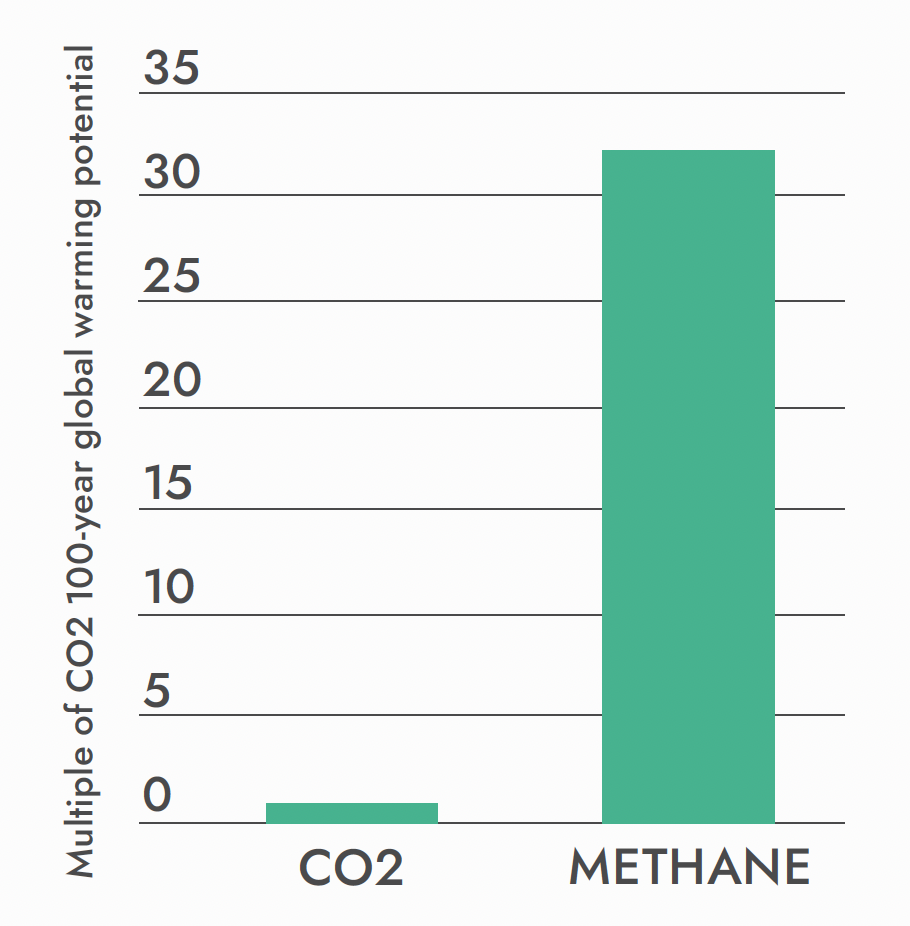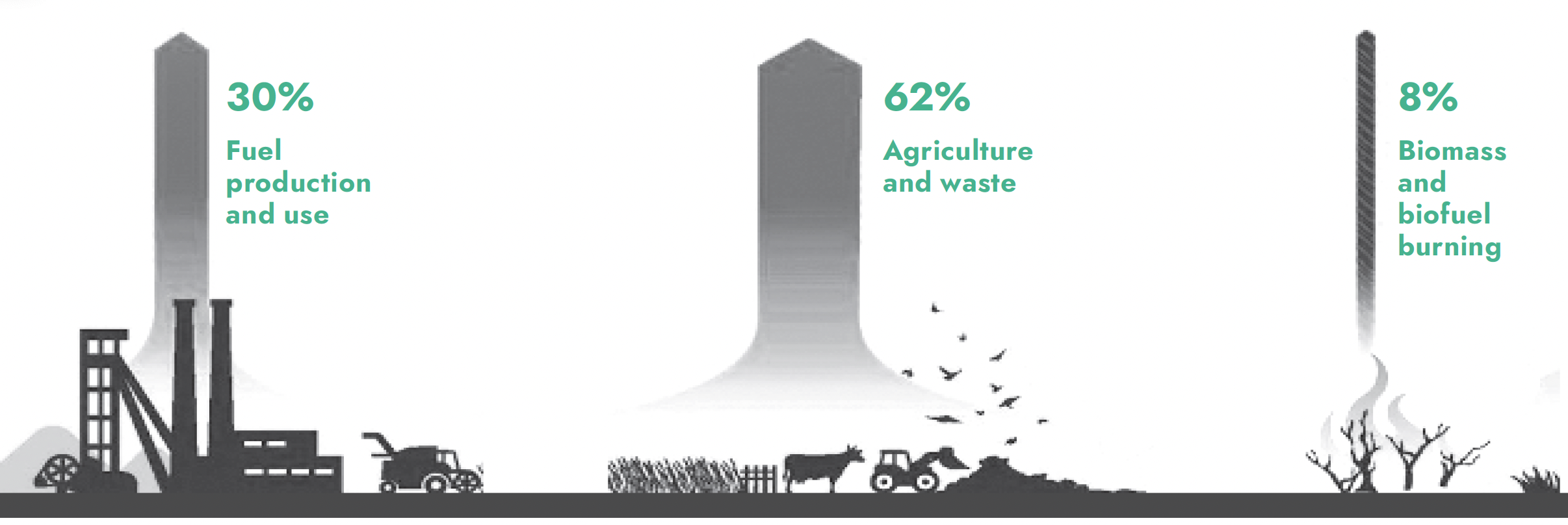Monitoring Methane Emissions: Addressing Climate Change
Members of Congress should support the Methane Emissions Mitigation Research and Development Act (H.R. 7651).
Methane Emissions from Oil and Gas: Key Climate Change Contributor
Methane (CH4) is the second-most abundant anthropogenic greenhouse gas and significantly contributes to global warming.
100-Year Global Warming Potential

Source: M. Etminan et al., Geophysical Research Letters 43 (2016)
2017 Global Methane Budget from Man-Made Sources

Source: The Global Methane Budget 2000-2017, by Marielle Saunois et al, Earth System Science Data
Although the challenge of reducing methane emissions can be daunting, the results from aerial monitoring show that with a technology and data-driven approach, operators can significantly reduce emissions while simultaneously reducing costs and improving operational efficiency.
– Pioneer Natural Resources (major U.S. oil and gas producer, 2022)
Opportunity For Impactful Action
Methane emissions from oil and gas production are localized, intermittent, and dominated by a relatively small number of super-emitters: less than 10% of sources of methane in oil and gas operations contribute more than half of the emissions in the sector.
Current Monitoring Capabilities Are Ineffective
- There are no calibration standards that allow for comparison or aggregation of observations from different tools.
- Current monitoring technologies face significant technological challenges limiting their effectiveness.
- Current methane monitoring systematically underestimates emissions by up to a factor of three.
A National Approach is Needed for Effective Methane Emissions Reduction
The Methane Emissions Mitigation Research and Development Act addresses methane monitoring inefficiencies by:
Building a national approach for testing and calibration of new methane monitoring technologies.
Directing support to critical research areas essential for effective monitoring of methane emissions.
Improving the ability of the United States to accurately estimate methane emissions nationally, which is critical to any strategy addressing climate change.